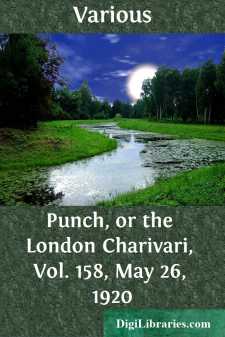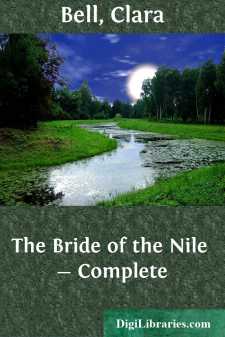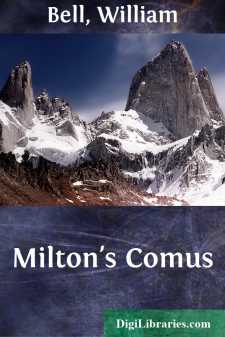Categories
- Antiques & Collectibles 13
- Architecture 36
- Art 48
- Bibles 22
- Biography & Autobiography 813
- Body, Mind & Spirit 142
- Business & Economics 28
- Children's Books 17
- Children's Fiction 14
- Computers 4
- Cooking 94
- Crafts & Hobbies 4
- Drama 346
- Education 46
- Family & Relationships 57
- Fiction 11829
- Games 19
- Gardening 17
- Health & Fitness 34
- History 1377
- House & Home 1
- Humor 147
- Juvenile Fiction 1873
- Juvenile Nonfiction 202
- Language Arts & Disciplines 88
- Law 16
- Literary Collections 686
- Literary Criticism 179
- Mathematics 13
- Medical 41
- Music 40
- Nature 179
- Non-Classifiable 1768
- Performing Arts 7
- Periodicals 1453
- Philosophy 64
- Photography 2
- Poetry 896
- Political Science 203
- Psychology 42
- Reference 154
- Religion 513
- Science 126
- Self-Help 84
- Social Science 81
- Sports & Recreation 34
- Study Aids 3
- Technology & Engineering 59
- Transportation 23
- Travel 463
- True Crime 29
Sort by:
THE MAN OF UZ. A joyous festival.— The gathering back Of scattered flowrets to the household wreath. Brothers and sisters from their sever'd homes Meeting with ardent smile, to renovate The love that sprang from cradle memories And childhood's sports, and whose perennial stream Still threw fresh crystals o'er the sands of life. —Each bore some treasured picture of the past, Some...
more...
by:
Various
CHARIVARIA. Bohemia has decided to have a Coalition Government. Several London morning papers are prepared to offer them one in good going condition, providing they pay cost of transit. According to a contemporary, "rabbits are worth less when they are skinned by the shopkeeper." So is the customer. "It is of greater advantage to know the Welsh language," says Professor Trow, "than...
more...
TRUE STORIES ABOUT DOGS AND CATS. In a pretty, quiet village in New England lived Mary Chilton. She was a widow. She had two sons; and it was the occupation and the happiness of her life to do all she could to make her boys good and happy. I should say to help and teach them to be good and happy; for boys and girls must make themselves good; and then, of course, they will be happy; and no one can be...
more...
by:
Edward Eggleston
A Hoosier Fairy Tale. You think that folks in fine clothes are the only folks that ever see fairies, and that poor folks can't afford them. But in the days of the real old-fashioned "Green Jacket and White Owl's Feather" fairies, it was the poor boy carrying fagots to the cabin of his widowed mother who saw wonders of all sorts wrought by the little people; and it was the poor girl...
more...
CHAPTER I. The Dead City The city without life lay handsomely along a river in the early sunlight of a September morning. Death had seemingly not been long upon it, nor had it made any scar. No breach or rent or disorder or sign of violence could be seen. The long, shaded streets breathed the still airs of utter peace and quiet. From the half-circle around which the broad river bent its moody current,...
more...
by:
John Cory
ear the end of his fifteenth orbit as Greenland slipped by noiselessly below, he made the routine measurements that tested the operation of his space capsule and checked the automatic instruments which would transmit their stored data to Earth on his next pass over Control. Everything normal; all mechanical devices were operating perfectly. This information didn't surprise him, in fact, he really...
more...
by:
Clara Bell
CHAPTER I. Half a lustrum had elapsed since Egypt had become subject to the youthful power of the Arabs, which had risen with such unexampled vigor and rapidity. It had fallen an easy prey, cheaply bought, into the hands of a small, well-captained troop of Moslem warriors; and the fair province, which so lately had been a jewel of the Byzantine Empire and the most faithful foster-mother to...
more...
by:
William Bell
INTRODUCTION. Few poems have been more variously designated than Comus. Milton himself describes it simply as “A Mask”; by others it has been criticised and estimated as a lyrical drama, a drama in the epic style, a lyric poem in the form of a play, a phantasy, an allegory, a philosophical poem, a suite of speeches or majestic soliloquies, and even a didactic poem. Such variety in the description...
more...
by:
John Berryman
What do you hate and fear the most? I know a girl who gags and throws up at the mere sight of a bird. Poor kid, when she was a barefoot moppet she stepped on a fledgling robin in the grass. She hasn't gotten over the squish of it yet. Birds don't trouble me. I can look at them all day. It takes snakes to give me the green shudders. I hate them. She was getting better at them, I decided. This...
more...
by:
F. M. S.
THE PICTURE. H, Madge, just stay as you are; there—your head a little more turned this way.""But, Raymond, I can't possibly make the toast if I do." "Never mind the toast; I shan't be many minutes," said the boy who was painting in the window, while he mixed some colours in an excited, eager manner. "The fire is very hot. Mayn't I move just to one side?"...
more...











